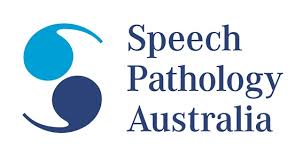Speech Pathologists indemnity and liability insurance
Your line of work is unique, so we’ve tailored an insurance policy that best suits the needs of your profession to better protect your reputation and livelihood.
Principle partner of


If you're forced to defend your professional reputation, you'll want the best support behind you.
Our policies include three types of insurance in one designed specifically for speech pathologists combining: professional indemnity insurance, public liability insurance, and product liability insurance.
Product liability
Insurance cover for liability for injury or property damage caused by goods sold or supplied by you to others. For example, this can include equipment or products provided to a patient that causes an allergic reaction or physical harm.
Extra benefits of this insurance policy
Nil basic excess on liability claims
Run-off cover which protects you when you’ve ceased practising permanently
Cover for legal costs and expenses associated with complaints to your registration body, disciplinary proceedings or a coronial inquiry
Provides a 21-day cooling-off period, allowing you to change your mind after purchasing coverage
Ongoing education through our RiskHQ, providing you with relevant and informative information on the risks that matter to you
Round-the-clock support with 24 / 7 claim support line availability
To find out more or to get your hands on our policy wording, simply call us on 1800 810 213.
FAQs
The law governs that any professional exercise the required skill to an appropriate level expected by that profession. A professional may be liable for financial loss, injury or damage arising from an act, error or omission of fault if the professional has not acted to the required level of skill deemed in that profession. Failure through this may result in the claimant (person who suffered the loss) be awarded for that loss, damage or injury.
Many professions require you to hold a professional indemnity insurance policy by law, such as Ahpra registered professions, but can be for other industries such as financial institutions also. Please check with your registration body or associations of your profession to know if it is required by law to have professional indemnity insurance. It is often also required by companies who take on contract workers that are not governed under the companies own insurance policy. It is acceptable for a company to ask you as the professional contractor to provide evidence of cover for professional indemnity before starting the contract period.
As stated above professional indemnity insurance covers you for breaches in relation to your professional duty. Liability insurance covers you for activity that results in personal injury or property damage as a result of your business activities that do not relate to your specific profession. An example may be someone who trips and is injured from spilled water within your office may be covered under liability, because it is your duty of care as business person to provide a safe environment. Whereas a person who suffers a loss or injury because of your professional treatment in relation to your job has caused it would usually be consider as an indemnity breach.
Generally business insurance is to cover the physical assets of your business for material damage loss and options for theft cover. It can also include cover for financial loss due to business interruption. Usually basic insurance does not cover breach of duty or flood cover, but if you speak to an insurance specialist it can often be added to your policy for a nominal fee.
Depending on the policy you are taking out, covers will often vary. At Guild insurance we specialise in making a policy to suit your business so that you are not over paying for covers you wouldn't normally need. The best thing to do is call 1800 810 213 to speak to an insurance specialist, they can find out what activities and structure your business is in to then provide you with adequate cover for you.
A certificate of currency (or COC for short) is a written document that confirms that your insurance policy is current and valid at a specific date and time. At Guild we provide easy access to your COC at any time within a few clicks of our online portal PolicyHub. If you are a new customer we can provide you with one post purchase.
Our partnership with Speech Pathology Australia
Guild is the principal partner of Speech Pathology Australia.
We work closely with your association to tailor an insurance policy suited to your unique needs.
Speech Pathology Australia is the national peak body for speech pathology, dedicated to supporting communication health and helping individuals connect and thrive.
Not just an insurance policy
Risk articles with RiskHQ

You can visit RiskHQ at any time to read up about the unique risks you face as a speech pathologist. We cover a variety of risk management topics, from managing complaints, to social media risks, maintaining your speech pathology centre, and much more.
When clients see multiple speech pathologists
Guild Insurance regularly manages claims where issues arise when a client has received a service from more than one clinician. This has lead Guild to explore how this situation may contribute to complaints by clients and/or their families which can lead to an insurance claim.
Evaluating another clinician’s work
Many speech pathologists will at times provide therapy for a client who has either previously or is currently receiving therapy from another speech pathologist. In some of these cases, the clinician may have questions about that other therapy, such as when:
- the therapy may not seem to be up to the expected standard;
- the therapy selected may not appear the be the most ideal or obvious choice given the clinical situation; or
- it may seem as though the therapy provided has not led to the intended or expected outcome.
Speech pathologists must be very mindful of how they handle these situations and what they say to or in front of the client and their family. It’s understandable that to provide therapy the speech pathologist will want an understanding of prior therapy. However conversations about another clinician’s therapy, if not conducted appropriately, may contribute to the client or their family lodging a complaint against that other clinician.
How can this be avoided?
- Don’t make negative comments to a client or their family about the service provided by another speech pathologist. It’s possible that the clinical presentation is not the same as what the first clinician observed. Also, if the client has told you what their assessment/therapy consisted of, it’s possible they may not be accurate due to difficulties recalling information and/or their lack of clinical knowledge. Even if you think that your comment regarding the nature and quality of therapy provided by another speech pathologist is small or insignificant, it could be enough to encourage that client to make a complaint.
- If you’re seeing a client for the first time, be careful to not fall into the trap of simply relying on the client or their family telling you what their previous therapy entailed or just relying on previous clinical notes. You may need to find out more information from the previous clinician to ensure you have a thorough understanding of the client’s situation; only then can you decide what therapy will be most appropriate.
- If you’ve taken over the therapy of a client from a speech pathologist whose records are incomplete or insufficient, you may need to spend some time doing further assessment before continuing with their ‘usual’ therapy. It’s advisable to engage the client in a positive conversation on why you’re doing that, to manage their expectations.
- Managing client expectations from the outset is vital. Make clients aware of what to expect from their therapy and the timeframe for expected change. Clients don’t like surprises. The more they understand about their therapy and the likely outcomes, the less likely they are to be dissatisfied.
- Building relationships with clients, and their families where relevant, is an important element in providing a service. Get to know your clients and work on gaining their trust.
- Clients may become concerned about the ongoing costs of therapy if they cannot see the benefits they had expected. Always be open and upfront about the cost of therapy, and the expected rate of progression towards goals. Always provide them with an indication of how long they may need the services of a speech pathologist.
- Documentation is vital! The key to dealing with a dissatisfied client who’s considering making a claim or complaint against you is to have complete and accurate records. If your work is being questioned by a client or another speech pathologist, you’ll need a record of the facts and reasoning behind your decision making.
- Avoid offering refunds or free therapy in the event of a poor or unexpected outcome. This may be seen by the client as an admission of responsibility or liability and they may expect that discounted or free therapy will continue. Always contact Guild Insurance on 1800 810 213 before offering any form of compensation to a client.
- And finally, consider your ethical and professional obligation to be respectful towards colleagues. Always maintain a high level of professional and appropriate behaviour, both when treating clients and also any other time you’re communicating and interacting with them and their families. This not only reflects well on you, it can also improve the public perception of speech pathology as a profession.
For further information and support regarding your professional obligations, contact Speech Pathology Australia on 03 9642 4899, 1300 368 835 or [email protected].
Download PDF here
- Speech Pathologists
- Professional
Insurance for Speech Pathology Centres
If you own a speech pathology centre or training facility and need insurance for your building, contents and more. Visit our information on business insurance for speech pathology businesses.

*Coverage up to $20 million requires your selection of cover up to this limit during the quote and purchase process.





Write a review Average rating: